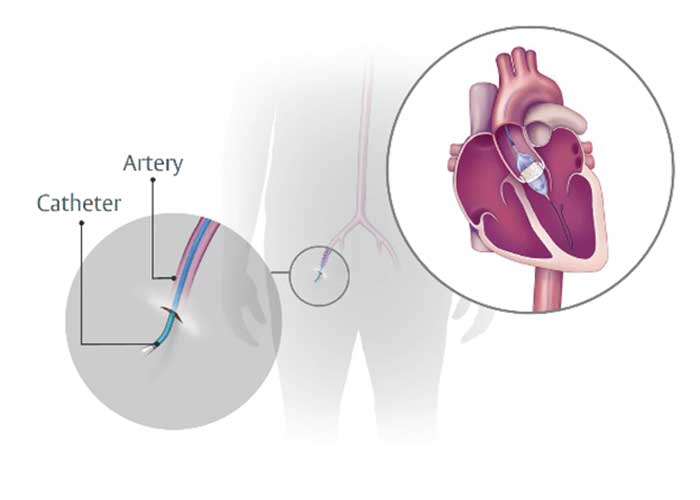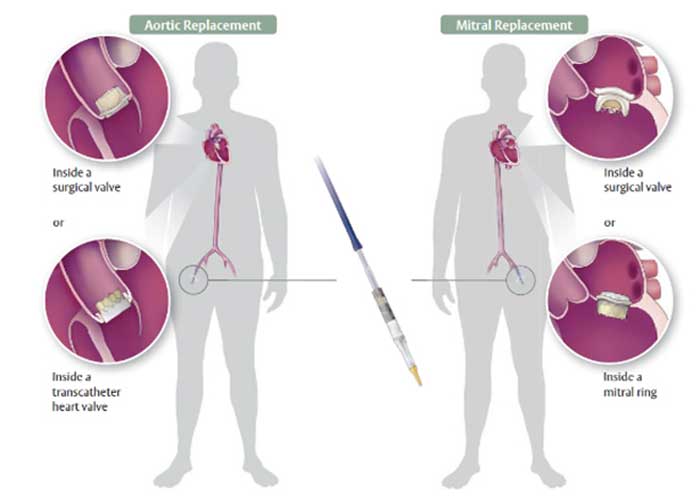Understand the Transcatheter Aortic Valve Replacement
Best Interventional cardiologist in Gachibowli Heart Specialist in Gachibowli
Aortic stenosis is a progressive disease that will worsen over time. Often, the symptoms of aortic stenosis are mistaken as normal signs of aging.

Know the Importance of Timely Treatment
Take back your future by starting discussions with your doctor about treatment options as soon as your aortic stenosis is diagnosed. As your aortic stenosis becomes severe and you have symptoms, the only effective way to treat it is to replace your heart valve. Today, patients who have severe aortic stenosis and are experiencing symptoms have two options to replace their aortic valve: TAVR (transcatheter aortic valve replacement) or open heart surgery (also known as surgical aortic valve replacement, or SAVR ). Many patients will die waiting for Aortic Valve Replacement. Aortic stenosis is a common public health problem affecting millions of people around the world. It is estimated that up to 12.4 % of people over age 75 have aortic stenosis. About 80% of adults with symptomatic aortic stenosis are male.

TAVR/TAVI is a less invasive procedure that doesn't require open heart surgery. The most common technique involves a small incision made in the leg, where a catheter will be inserted into your artery to replace your diseased valve while your heart is still beating.
TAVR/TAVI is approved indication for all symptomatic severe aortic stenosis patients who are at any level of risk for open heart surgery.
The use of less invasive procedures - particularly TAVI via transfemoral approach performed under conscious sedation and/or local anesthesia, may present an opportunity to minimize ICU and hospital stay - ESC Guidance for the Diagnosis and Management of CV Disease during the COVID-19 Pandemic.
If your native aortic or mitral heart valve has been replaced with a bioprosthetic heart valve or your native mitral valve has been repaired with a prosthetic ring, two common problems may occur over time:
Stenosis: when your heart valve narrows and does not open completely and/or
Regurgitation: when your heart valve does not close completely and blood leaks backwards
It is important that your heart valves are always working properly. Your heart valves should:
Be properly formed and flexible
Open all the way so that the right amount of blood can pass through
Close tightly so that no blood leaks back into the chamber


